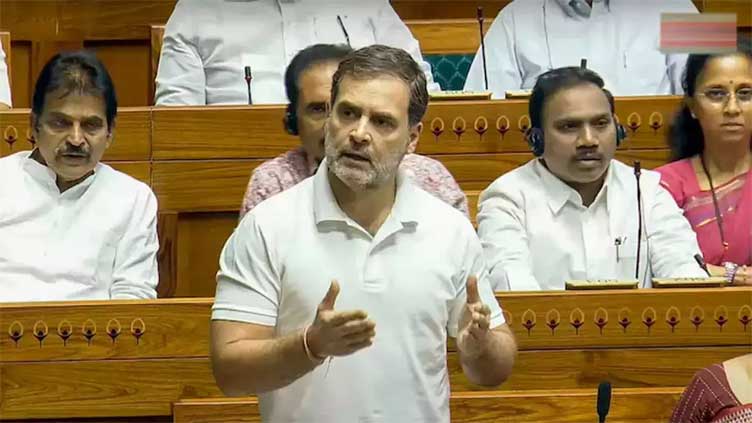India's parliament removes parts of Rahul Gandhi's speech targeting Modi

World
Among the sections removed from the speech were parts linked to religious hate and violence
NEW DELHI (Reuters) – Indian opposition leader Rahul Gandhi's first speech in the new parliament ran into controversy with parts of it, including accusations against Prime Minister Narendra Modi and his party, redacted on Tuesday for violating the rules of the legislature.
The decision by the speaker of the lower house came a day after Gandhi made his maiden speech as the leader of the opposition in the chambers, his first official position after two decades as a lawmaker representing the main opposition Congress party.
Among the sections removed from the speech, which was telecast live by TV channels, were Gandhi's attacks on Modi and his Hindu nationalist Bharatiya Janata Party and what he said were their links to religious hate and violence.
Gandhi also made multiple references to industrialists Gautam Adani and Mukesh Ambani and linked them to Modi and his government, which were removed by speaker Om Birla, parliament records showed.
Following the speech, federal ministers Ashwini Vaishnaw and Kiren Rijiju told reporters that they met Birla to point out "inaccuracies" in Gandhi's speech and were assured their complaint would be examined.
Under Indian parliamentary rules, the speaker can expunge or redact words used by lawmakers in the chambers that are deemed defamatory, indecent, unparliamentary, or undignified, following which they cease to exist in parliament's records and can no longer be reported by the media.
Responding to the speaker's decision, Gandhi said "truth cannot be expunged".
He wrote to Birla requesting the redacted remarks be restored, saying they were not violations and conveyed the "ground reality" and "factual position".
"Taking off from records my considered remarks goes against the very tenets of parliamentary democracy," he said.
The scion of a dynasty that gave India three prime ministers, Gandhi is the first leader of the opposition in a decade in the lower house, where no opposition party was able to secure the numbers to claim the position in the last two terms.
He led an opposition alliance of two dozen parties that denied Modi an outright majority in the April to June multi-phase general election, forcing him to depend on regional parties for the first time and form a coalition government to return as prime minister for a rare third straight term.


